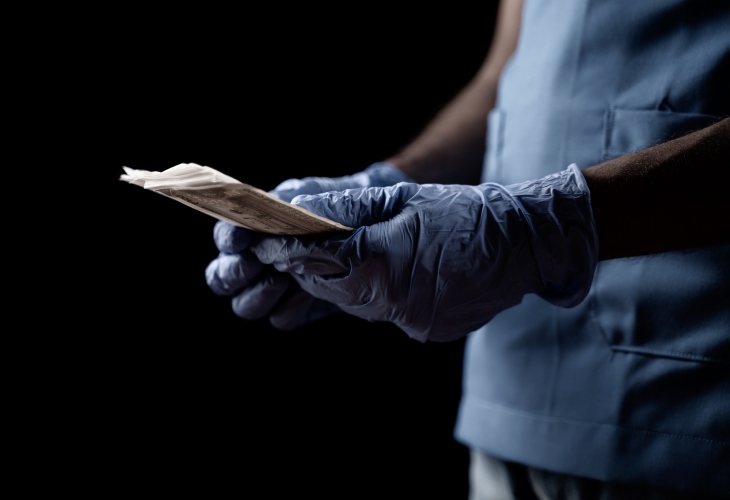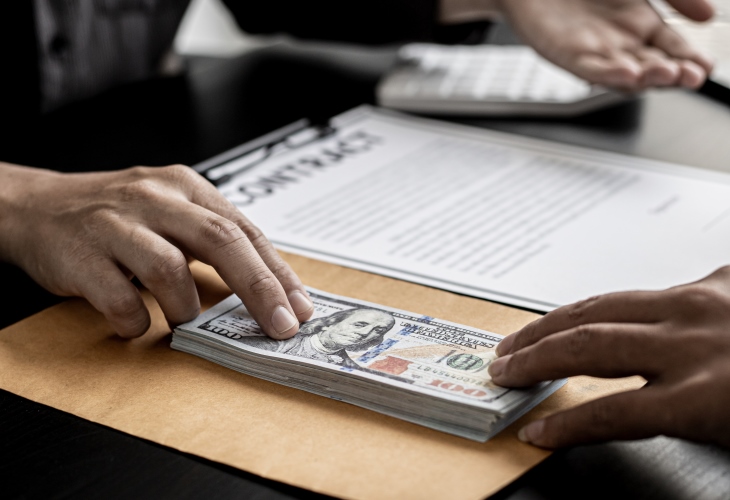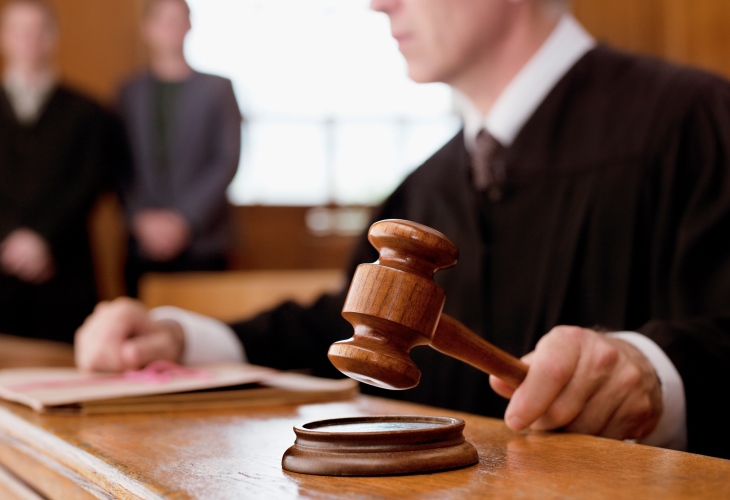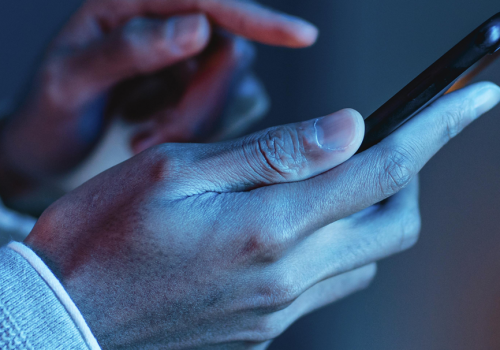The ongoing COVID-19 pandemic has resulted in wide-scale disruption of all aspects of life. While governments and individuals continue to grapple with the devastating effects of the virus, they also face the challenges of corruption.
This article takes a closer look at the link between COVID-19 and the increased risk of bribery in different sectors, and the elements required to prove a bribery charge in the US.
The pandemic and corruption: What is the link?
It is widely known, as well as studied by many experts of the field that corruption has existed for thousands of years and the earliest records of bribery date back to 3000 B.C. Studies show that natural disasters increase corruption in public sectors across developed and developing countries.
The frequency of natural disasters significantly impacts the level of corruption in developed countries. During these times, owing to shifting priorities, organizations face the risk of deprioritizing their key objectives of business integrity, transparency, and whistleblowing. The uncertainties posed by the ongoing COVID-19 crisis led businesses across sectors and industries to focus on disaster recovery, business continuity, and client/employee welfare over integrity.
While the pandemic has stressed out organizational infrastructures in many ways, the crisis has encouraged poor behavior among clients, third parties, and employees across sectors such as healthcare, pharmaceuticals, oil and gas, and others.
Healthcare
Corruption in healthcare is not a new phenomenon. Estimations show that while $7.35 trillion was being spent annually across the world on healthcare before the pandemic crisis, $455 billion was lost to corruption.

Massive resources that were mobilized in response to the pandemic created immense opportunities for corruption. In addition, corruption prevention mechanisms have been suspended owing to the emergency.
Corruption risk undermines the trust of the public in public institutions while supplies and resources get squandered, blocking their flow to people who need them the most. From falsification of certificates for medical equipment, unnecessary intermediaries to delivery of lower quality equipment, bribery and kickbacks were rampant in the healthcare system.
An anti-fraud company based in Germany surveyed 58 countries and found that a majority experienced corruption with respect to access or purchase of PPE (personal protective equipment). According to another report, irregularities were the norm in coronavirus responserelated government contracts across dozens of countries.
Transparency International’s survey of Asian nations reveals that bribery rates were the highest in the past year. While utility services topped the list where citizens faced the highest corruption in India, public health services were the second in the list. Apart from India, some of the Asian countries that had a high bribery rate include Indonesia, Sri Lanka, Bangladesh, Malaysia, Japan, and Vietnam.
Oil and gas
Oil and gas or other extractive industries have always been vulnerable to corruption and the most common of them being paying bribes to win contracts. One of the factors that increases the corruption risk is the complex relationships the companies have with government officials and multiple third parties across the world. Secondly, these companies often look for natural resources in emerging markets that may lack the infrastructure, stability, and regulatory environments.
The OECD (Organisation for Economic Cooperation and Development) Foreign Bribery Report from 2014 finds that 53% of foreign bribery cases in the sector involved CEOs or corporate management. While intermediaries were involved in three out of four bribery cases (marketing and sales agents, distributors, local consulting companies, and so on), in 57% of cases, bribes were paid to secure public procurement contracts. Bribes were offered, given, or promised frequently to employees of state-owned or public enterprises, custom officials, and defense and health officials.
The full impact of the pandemic in the oil and gas industry remains to be seen. However, according to the Natural Resource Governance Institute, the falling demand, the oil price shock, disrupted supply, and reduced commodities’ prices combine to increase the risk of corruption in the sector.
Both private and national oil companies are facing pressure across the world to cut costs. From shuttering off key projects, layoffs slowed down, or shutting production to financial losses, oil companies are going through an unprecedented crisis. Consequently, executives may opt to reduce budget allocation to compliance and anti-corruption measures and compliance (such as due diligence, project monitoring, public reporting, staff training).
The second risk relates to cutting corners with regulators facing the challenge of monitoring the companies’ behavior during the pandemic. Complying with health, labor, safety, and environmental regulations is expensive, which can prompt struggling companies to side-step obligations or attempt to bribe regulators, or exploit weaknesses within regulatory enforcement.
Pharmaceuticals
Corruption instances in pharmaceuticals and medical supply procurement are bountiful across the countries during the pandemic. Dubious contracts have been awarded to procure N95 face masks, testing kits, and PPE kits. In Brazil, for instance, face masks were purchased from a supplier close to the President. These masks were 67% costlier than other supplier bids.
Corrupt activities and kickbacks are also quite common when it comes to the procurement of essential medicines. Apart from improper bidding procedures, bribes for inspectors and kickbacks for referrals are common in public procurement. Many high-profile cases in recent times have highlighted the widespread proliferation of bribes and kickbacks in the industry. Pharmaceutical companies bribe doctors to influence their decisions over prescriptions and consequently, procurements. For instance, Novartis paid $678 million to settle a corruption lawsuit in 2020. The firm was found to have spent over $100 million for its extensive kickback program to influence doctors to prescribe its medicines.

Anti-bribery legislation in the US
The Foreign Corrupt Practices Act (FCPA) of 1977 is the main anti-bribery legislation in the US. The law prohibits companies and individuals from offering corrupt payments directly or indirectly to foreign officials or entities. However, the FCPA does not cover employees and officials of the federal and state governments in the US.
Domestic bribery is covered in 18 U.S.C. § 201 that was enacted in 1962. The statute prohibits individuals and companies in the US from offering bribes of any kind to public officials to influence an official act. An overlapping statute is the mail and wire fraud statute (18 U.S.C. § 1346) that defines honest services fraud that prohibits corrupt schemes intended to deprive another of their right to honest services.
Additionally, the US is also a member of the UN Convention against Corruption, OECD Anti-Bribery Convention, and Inter-American Convention against Corruption. Apart from these, many states have their own anti-bribery laws and limitations on gift and hospitality offered to government officials.
Proving bribery
18 USC Section 201 has two parts: Section 201(b) criminalizes bribery, while Section 201(c) prohibits receiving or payment of gratuities. To prove bribery took place under Section 201(b), quid pro quo (bribe offered in exchange for a favor) has to be established, while this is not a requirement under the gratuities provision.
To secure a conviction for the one who paid a bribe under Section 201(b), it has to be proven that a bribe (something of value) was promised, offered, or given to a public official to influence an official act. To obtain the conviction of the one who received bribe, it has to be proven that a public official agreed, accepted, or solicited to accept bribe in return of “being influenced”.
For gratuities conviction, the only aspect to be proven is that bribe has been willingly offered or given “because or for any official act”. It is not necessary to show that there was intent to influence any official act with the bribe.
At a basic level, the only thing that has to be proven in charges of bribery is that an agreement took place between the concerned parties that a favor would be provided in exchange for cash or something of value.
While a written agreement may not be required to prove the same, prosecutors have to establish that the agreement actually took place. For instance, a recorded phone conversation where a politician agreed to receive bribe from a party could constitute evidence. A video of an officer accepting cash from a driver before letting the latter go is also evidence.

Typically, the prosecution relies on paper evidence in cases of bribery for proving intent. These can include receipts, bank statements, text messages, and emails in addition to any evidence gathered from recorded phone conversations and wire taps.
In cases where there is no paper or recorded evidence, prosecutors may also provide evidence of the defendant’s flashy lifestyle. Circumstantial evidence may also be enough to show that bribe happened. For instance, there could be evidence that shows a contract was opened for bidding and a meeting between the concerned parties happened. Sometime later, the official offering the contract goes on an expensive vacation that they earlier could not afford as their financial records show during the investigation. The argument here will be that there is circumstantial evidence to show the official was offered and accepted a bribe from the one who secured the contract.
Subpoenas are another way of gathering evidence, while whistleblowers are often the initiators of the bribery charges.
Whistleblowers are offered protection as well as incentives under the FCPA such as monetary awards that range from 10 to 30% of the amount of bribe collected. Retaliation against whistleblowers is also prohibited and penalized.
The person who accepted the bribe must be a public official such as federal employees or elected officials. The one who offers the bribe must be offering cash, promise of support, something of value, or another type of favor. The other key element for proving bribery is that the person who receives the bribe does a favor in return for the bribe such as voting in favor of law. It must be proven that the public official or the person receiving the bribe has the authority to carry out the favor and that the one who bribed had a specific intent.
In addition, proof is required of a causal relationship between the official act and the bribe that is not simply a suspicious coincidence. Solicitation of bribe is also a crime even if it does not result in receiving a valuable gift.
Conclusion
The pandemic crisis has created exigent circumstances that raise the risk of bribery within the country and FCPA issues. Extended national lockdown across the country has increased pressure on businesses to procure supplies and raise revenue. Sectors such as life sciences, pharmaceuticals, healthcare, and allied businesses are at significant risk for anti-bribery regulation violations.
With factories remaining closed or operating at minimal levels in response to the COVID-19 situation, many multinational companies are faced with the scarcity of their traditional sources of labor, goods, and raw materials. While minimizing the negative impacts on their revenue, companies need to revamp their due diligence practices to meet the demands of the new circumstances. Given the extent of the financial impact of lockdowns, the risk of bribery and corruption remains high as businesses or individuals seek to influence government officials in this regard.

Laws that cover bribery are utilized to punish the one offering the bribe as well as the one who receives it. Defendants (the ones charged with taking bribe) can include government officials, elected representatives, board members, police officers, sports officials, labor union officers, and business leaders.
For any individual or entity, a bribery charge can mean a huge reputational and business risk. If the charges are proven, the penalties including jail time and fines can be severe. Consulting a white-collar crime attorney is the crucial step in proving or defending yourself against a bribery charge.









